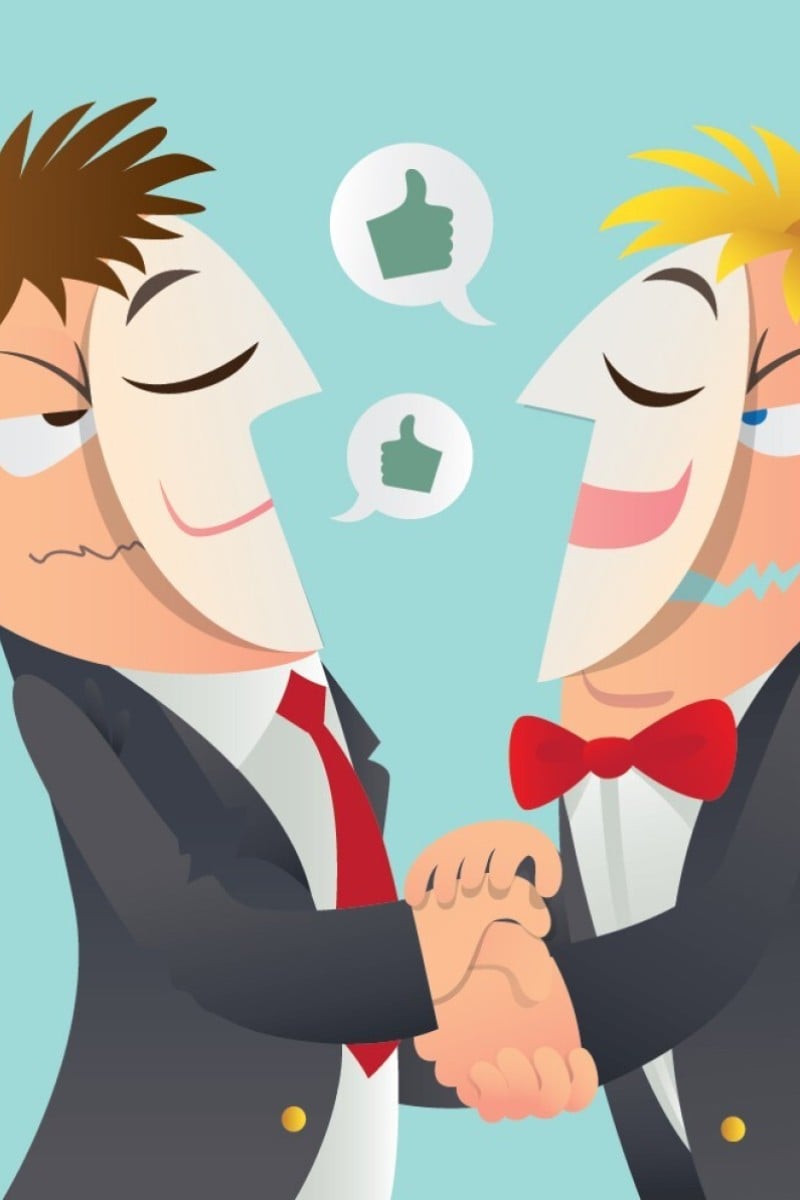
- Adam Smiley Poswolsky, author of the upcoming self-help book ‘Friendship in the Age of Loneliness’, explains why having frenemies can be especially stressful for teens
- Trying to maintain a drama-free relationship with some people can take a toll on your mental health
 Is it still a friendship when the other person brings you down?
Is it still a friendship when the other person brings you down?Do you have that one friend that keeps talking behind your back, or bringing you down with snide comments? They might just be your frenemy.
Adam Smiley Poswolsky, author of upcoming self-help book, Friendship in the Age of Loneliness, tells Young Post how to make peace with accepting that someone you thought was your BFF, simply isn’t.
The American author and Ted talk motivational speaker defines a friendship as a relationship where two people lift each other up and help one another succeed.
“That success can be personal or getting better grades at school,” he says.
“But if your friend is trying to hurt you, or keeping you from being your best self, that’s a sign that you might have a toxic friendship.”
This toxicity can be in the form of outright hurtful jokes about your appearance, or in more subtle ways such as pressuring you to play video games with them when you are revising, or making you feel bad for going to the gym.
Why, then, do some of us hang on to friends that drive us nuts? Poswolsky explains that loyalty is a hard habit to break.
“Once we’ve agreed that someone is a friend, it becomes hard to admit the friendship isn’t working, because it can feel like we’re letting that person down,” the millenial workplace expert says.
Had an argument with a friend? Here’s how to patch things up
Poswolsky says toxic relationships can be especially difficult for today’s teens, who are more likely to broadcast their friendship on social media.
“When it comes to dealing with a broken friendship, it feels like we’re admitting failure, not only to ourselves, but to all of our followers. And this plays to our fear of being worried that people are judging us.”
But that doesn’t mean you have to grin and bear it while your frenemy constantly cuts you down.
Poswolsky stresses that being honest and having open communication with your friends is far more important than pretending everything is perfect in a friendship when it’s not.
Why male friendships are so important for your mental and physical health, and your future
“Instead of simply ignoring them or DM-spamming them with angry messages, have a face-to-face conversation and tell them what’s bothering you,” Poswolsky says.
“It’s so easy to misinterpret what people are saying, especially on social media.”
This is even more relevant if you are in a situation where you feel like you have to pick sides between friends.
Even when you’re the one suffering in the friendship, Poswolsky adds that it’s important to ask your frenemy how they are feeling.
Am I cheating on my girlfriend is I like another girl’s Instagram posts?
“You might be surprised by how this one little question can help open up communication.”
It can be natural not to want to give up on someone, but maintaining a cordial, drama-free relationship can take a huge mental toll. When that happens, it’s probably time to decide if the friendship is more trouble than it’s worth.
Poswolsky suggests trusting your gut feelings – if a friendship makes you feel sick, tired, or unhappy, that’s a good sign it isn’t working anymore.
“If you don’t feel excited about talking to someone or hanging out with them, that might be a sign to take a break from hanging out, or call a timeout on your friendship.”
